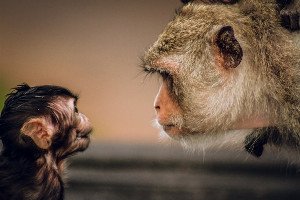Michael Allen
ANIMAL LIBERATION FROM A GANDHIAN PERSPECTIV: POLITICAL AND SPIRITUAL FREEDOM IN THE PURUSHARTHAS
Introduction
Animal liberation from a gandhian perspectiv: political and spiritual freedom in the purusharthas. Discover a novel Gandhian perspective on animal liberation, reinterpreting the purusharthas for non-human animals. This view integrates political and spiritual freedom, challenging current animal ethics.
Abstract
In this article, I develop a Gandhian perspective on animal liberation. Indeed, I argue, against Gandhi himself, the traditional Hindu theory of the purusharthas, or goals of life, applies to non-human as well as human animals. In this respect, I adapt Parel’s reading of Gandhi as reinterpreting the purusharthas through the philosophy of non-violence. In this reinterpretation, Gandhi, regards political freedom (swaraj) as the means to spiritual freedom (moksha). Gandhi is already an animal liberationist in the sense of advocating liberation for animals from violence and exploitation by humans. However, he does not also embrace the political turn in animal ethics, asserting that domesticated animals are co-citizens of the mixed polity. I further reinterpret the purusharthas through Gandhi’s philosophy of non-violence to embrace this political turn. This combines three forms of liberation: negative freedom from exploitation, positive freedom to be a political participant, and freedom as spiritual growth and self-development. Not only does my argument provide a novel Gandhian perspective on animal liberation. It also challenges the political turn in animal ethics to embrace Gandhi’s notion of spiritual liberation as a goal of life for the mixed, interspecies polity.
Review
This article presents a profoundly original and ambitious reinterpretation of Gandhian philosophy to construct a comprehensive framework for animal liberation. The central argument, daringly posited against Gandhi's own explicit views, is that the Hindu *purusharthas*, or goals of life, are applicable not only to humans but also to non-human animals. By adapting Parel’s reading of Gandhi and reinterpreting the *purusharthas* through the lens of non-violence, the author posits *swaraj* (political freedom) as a vital means to *moksha* (spiritual freedom) for an interspecies polity. The paper commendably moves beyond Gandhi's established advocacy for animal freedom from violence and exploitation to embrace the "political turn" in animal ethics, envisioning domesticated animals as co-citizens within a mixed society. The strength of this contribution lies in its innovative synthesis, which combines three crucial forms of liberation: negative freedom from exploitation, positive freedom encompassing political participation, and a distinctive focus on spiritual growth and self-development as a goal for all beings. This tripartite understanding significantly enriches contemporary discussions in animal ethics by introducing a spiritual dimension often overlooked in more secular political frameworks. The article’s audacity in extending complex philosophical concepts like *swaraj*, *moksha*, and political co-citizenship to non-human animals is commendable, offering a genuinely novel Gandhian perspective that simultaneously challenges and expands existing paradigms within the field. It provides a unique lens through which to consider the moral and political standing of animals, pushing the boundaries of traditional thought. While the conceptual framework is compelling, a full article would ideally need to delve deeper into the practical and theoretical implications of such an expansive vision. Specifically, the challenges of defining and operationalizing "political participation" and "spiritual growth/self-development" for non-human animals warrant extensive exploration. How, for instance, would an animal's "spiritual growth" be understood or facilitated within a mixed polity? Furthermore, a more detailed engagement with the existing literature on the political turn in animal ethics would strengthen the argument for how this Gandhian perspective provides a unique and necessary challenge, rather than merely an addition. Nonetheless, this abstract promises a groundbreaking contribution that has the potential to reshape how we think about animal liberation, bringing ancient wisdom to bear on contemporary ethical dilemmas with remarkable intellectual courage.
Full Text
You need to be logged in to view the full text and Download file of this article - ANIMAL LIBERATION FROM A GANDHIAN PERSPECTIV: POLITICAL AND SPIRITUAL FREEDOM IN THE PURUSHARTHAS from The Journal of East West Thought .
Login to View Full Text And DownloadComments
You need to be logged in to post a comment.
Top Blogs by Rating
Beyond the Blueprint: Why Your...
By Sciaria
The Evolution of Knowledge in...
By Sciaria
The Ageless Enigma: What Biolo...
By Sciaria
Favorite Blog
The Data Diet: What Big Data *...
By Sciaria
The Geological Secret in Your...
By Sciaria
Beyond Impatience: A Philosoph...
By Sciaria
Related Research
Il complesso monastico di san domenico: manufatti ceramici della produzione cd. “protomaiolica”.
Implementation of teacher internships in the independent curriculum to student mentality for bkk vocational schools in surakarta
The form of texts: possibilities and limitations of an «integral» text- typological model
Share
Notice Board
- ABSTRAçõES COMPUTACIONAIS E IDENTIDADES EM ARQUIVOS COLONIAIS E PóS-COLONIAIS
- ENHANCING BREASTFEEDING MOTIVATION: THE ROLE OF HUSBANDS’ KNOWLEDGE AND SUPPORT AMONG POSTPARTUM MOTHERS
- PELATIHAN CANVA DAN CAPCUT SEBAGAI UPAYA PENINGKATAN KAPASITAS CAKAP DIGITAL SERTA PENGUATAN NILAI-NILAI PANCASILA PADA REMAJA DESA PENAKIR





